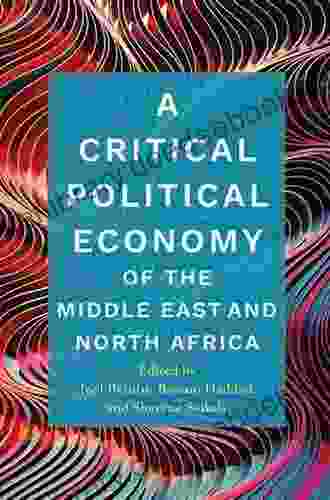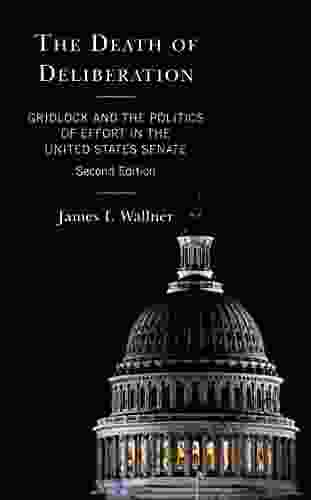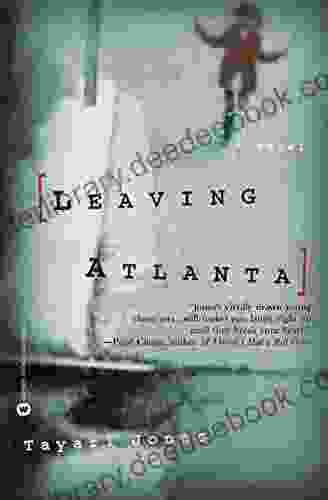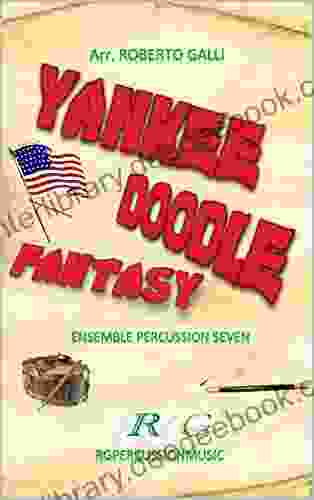Gridlock and the Politics of Effort in the United States Senate: An In-Depth Analysis

The United States Senate, once hailed as the "world's greatest deliberative body," has in recent decades become synonymous with gridlock and inaction. While partisan polarization and the filibuster have long been cited as major contributing factors, the concept of the "politics of effort" has emerged as a crucial lens through which to understand the Senate's current predicament.
The Partisan Divide and the Erosion of Cooperation
Partisan polarization has reached unprecedented levels in the Senate, with Republicans and Democrats increasingly divided on ideological lines. This divide has made it difficult to find common ground on even the most pressing issues, leading to gridlock and legislative stalemates. For example, in the 115th Congress (2017-2019),the Senate failed to pass a single major piece of legislation with bipartisan support.
5 out of 5
| Language | : | English |
| File size | : | 16584 KB |
| Text-to-Speech | : | Enabled |
| Screen Reader | : | Supported |
| Enhanced typesetting | : | Enabled |
| Word Wise | : | Enabled |
| Print length | : | 249 pages |
| X-Ray for textbooks | : | Enabled |
Compounding the partisan divide is the erosion of personal relationships and trust between senators from different parties. In the past, senators were more likely to develop friendships and work together across party lines. However, in recent years, personal animosities and mistrust have become more common, making it even more challenging to build consensus and forge compromises.
The Filibuster's Obstructive Power
The filibuster, a tactic that allows a single senator to delay or block legislation indefinitely, has become a major obstacle to legislative progress in the Senate. In the past, the filibuster was used sparingly and mostly for legitimate reasons, such as to prevent hasty or ill-conceived legislation from passing. However, in recent years, the filibuster has been used more frequently and often as a partisan weapon to obstruct the opposing party's agenda.
The threat of a filibuster can effectively kill legislation before it even reaches the Senate floor for a vote. This has given individual senators immense power to block bills that they oppose, even if they do not have the support of a majority of the chamber. As a result, many senators are reluctant to introduce legislation that is likely to face a filibuster, further contributing to gridlock.
The Politics of Effort and Strategic Inaction
In addition to partisan polarization and the filibuster, the "politics of effort" has played a significant role in the Senate's gridlock. The politics of effort refers to the strategic decisions that senators make about how much effort to invest in legislative processes, including committee work, floor debates, and negotiations.
According to political scientists, senators are more likely to expend effort when they believe that their actions will make a difference in the outcome of legislation. However, in the current hyper-partisan Senate, many senators have come to believe that their efforts are futile. They may perceive that the outcome of a bill is predetermined by partisan lines or that their efforts will be blocked by the filibuster. This perception can lead to a vicious cycle of strategic inaction, where senators choose to conserve their political capital rather than risk investing it in legislative processes that they believe are unlikely to succeed.
Consequences of Gridlock: A Stalled Agenda
The gridlock in the Senate has had a profound impact on the policymaking process, leading to a backlog of pressing issues that remain unresolved. Critical legislation on healthcare, education, immigration, and climate change has languished in the Senate, while partisanship and procedural obstacles have prevented meaningful progress.
The consequences of gridlock extend beyond the inability to pass new laws. The Senate's inability to fulfill its basic legislative functions has also eroded public trust in the institution. According to a 2021 Gallup poll, only 13% of Americans approve of the job Congress is ng. This low approval rating reflects the public's frustration with the Senate's gridlock and the perception that it is failing to address the nation's pressing challenges.
Pathways to Reform: Breaking the Deadlock
Overcoming gridlock in the Senate will require addressing the underlying causes of partisan polarization, reforming the filibuster, and changing the politics of effort. While these challenges are formidable, there are potential pathways to reform that could break the current deadlock.
One possible solution is to reform the filibuster rules. Proposals have been put forward to limit the use of the filibuster, such as by requiring a 60-vote threshold to sustain it or by eliminating it altogether. These reforms would give the majority party more power to pass legislation and reduce the ability of the minority party to obstruct the legislative process.
Another approach is to encourage a change in the politics of effort. Senators need to be incentivized to invest in legislative processes, even when the outcome is uncertain. This could be achieved through reforms that increase transparency and accountability, make it easier to track senators' contributions to legislation, and reward bipartisan cooperation.
Finally, it is crucial to address the underlying causes of partisan polarization. This will require a long-term effort to promote civility, reduce negative partisanship, and encourage dialogue and compromise between political opponents.
: Restoring the Senate's Deliberative Function
The gridlock in the United States Senate is a serious problem that has far-reaching consequences for the nation's policymaking process and public trust in government. By understanding the complex interplay of partisan polarization, the filibuster, and the politics of effort, we can begin to identify potential solutions and pathways to reform.
Overcoming gridlock will not be easy, but it is essential for restoring the Senate's deliberative function and ensuring that it remains an effective and responsive branch of government. By promoting bipartisan cooperation, reforming procedural obstacles, and changing the incentives for effort, we can break the current deadlock and restore the Senate to its rightful place as the "world's greatest deliberative body."
5 out of 5
| Language | : | English |
| File size | : | 16584 KB |
| Text-to-Speech | : | Enabled |
| Screen Reader | : | Supported |
| Enhanced typesetting | : | Enabled |
| Word Wise | : | Enabled |
| Print length | : | 249 pages |
| X-Ray for textbooks | : | Enabled |
Do you want to contribute by writing guest posts on this blog?
Please contact us and send us a resume of previous articles that you have written.
 Novel
Novel Page
Page Text
Text Story
Story Genre
Genre Newspaper
Newspaper Shelf
Shelf Glossary
Glossary Bibliography
Bibliography Preface
Preface Synopsis
Synopsis Footnote
Footnote Scroll
Scroll Codex
Codex Bestseller
Bestseller Classics
Classics Library card
Library card Biography
Biography Autobiography
Autobiography Reference
Reference Encyclopedia
Encyclopedia Thesaurus
Thesaurus Narrator
Narrator Librarian
Librarian Catalog
Catalog Card Catalog
Card Catalog Periodicals
Periodicals Research
Research Scholarly
Scholarly Reserve
Reserve Journals
Journals Reading Room
Reading Room Special Collections
Special Collections Interlibrary
Interlibrary Literacy
Literacy Dissertation
Dissertation Storytelling
Storytelling Book Club
Book Club Theory
Theory Textbooks
Textbooks Armand Rosamilia
Armand Rosamilia Eoin Colfer
Eoin Colfer Sharon S Darrow
Sharon S Darrow Shannon Mcclintock Miller
Shannon Mcclintock Miller Marcel Proust
Marcel Proust Deanna Edens
Deanna Edens Kenny Kings
Kenny Kings Jan Yager
Jan Yager Danelle Harmon
Danelle Harmon Matthew Gilbert
Matthew Gilbert Katja Hujo
Katja Hujo Thomas Lux
Thomas Lux Felicia Vine
Felicia Vine Samanta Schweblin
Samanta Schweblin A W Stencell
A W Stencell Ia Moore
Ia Moore Rashid Khalidi
Rashid Khalidi Liz Durano
Liz Durano Mary Salyers
Mary Salyers Leslie Kemp Poole
Leslie Kemp Poole
Light bulbAdvertise smarter! Our strategic ad space ensures maximum exposure. Reserve your spot today!

 August HayesThird Ear: The Essential Listening Companion for Audiophiles and Music Lovers
August HayesThird Ear: The Essential Listening Companion for Audiophiles and Music Lovers
 Marcel ProustBuilding Communities and Discourse: A Journey Through Asian American History...
Marcel ProustBuilding Communities and Discourse: A Journey Through Asian American History... Jamie BlairFollow ·9.1k
Jamie BlairFollow ·9.1k Winston HayesFollow ·9.7k
Winston HayesFollow ·9.7k Herb SimmonsFollow ·7.7k
Herb SimmonsFollow ·7.7k Ibrahim BlairFollow ·4.6k
Ibrahim BlairFollow ·4.6k Stanley BellFollow ·3.7k
Stanley BellFollow ·3.7k Jaden CoxFollow ·3.9k
Jaden CoxFollow ·3.9k Jonathan HayesFollow ·13.7k
Jonathan HayesFollow ·13.7k Barry BryantFollow ·7.9k
Barry BryantFollow ·7.9k

 Bo Cox
Bo CoxDiscover the Enchanting Allure of Collingwood, Ontario,...
Nestled amidst the breathtaking landscape of...

 Ralph Ellison
Ralph EllisonThe Street of Clocks Poems: A Poetic Journey Through Time
Welcome to The Street...

 Dwight Blair
Dwight BlairCritical Political Economy of the Middle East and North...
The Middle East and...

 Deion Simmons
Deion SimmonsPerfect Strategies For Painting Amazing Marine Creatures...
Gouache is a...

 Hugh Bell
Hugh BellThe American Republic: Constitution, Tendencies, and...
The American Republic,...
5 out of 5
| Language | : | English |
| File size | : | 16584 KB |
| Text-to-Speech | : | Enabled |
| Screen Reader | : | Supported |
| Enhanced typesetting | : | Enabled |
| Word Wise | : | Enabled |
| Print length | : | 249 pages |
| X-Ray for textbooks | : | Enabled |










